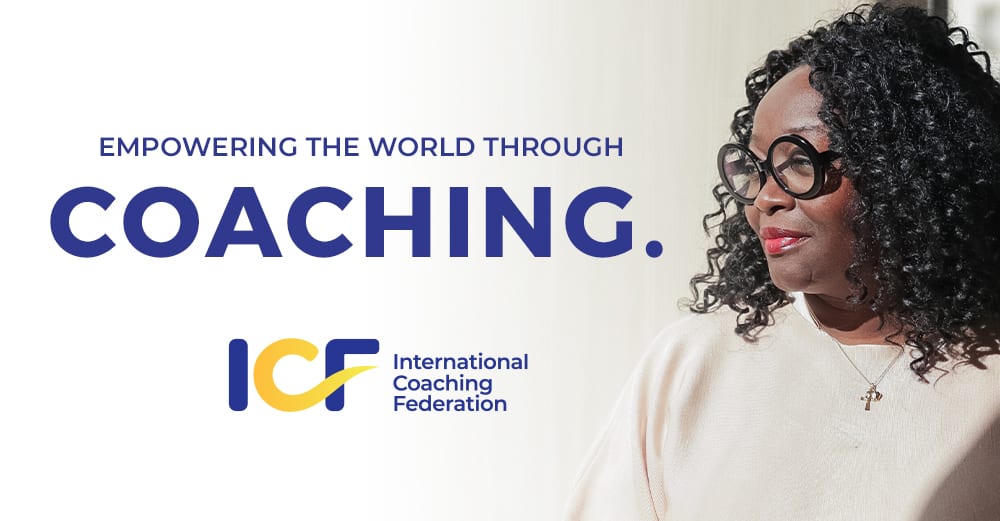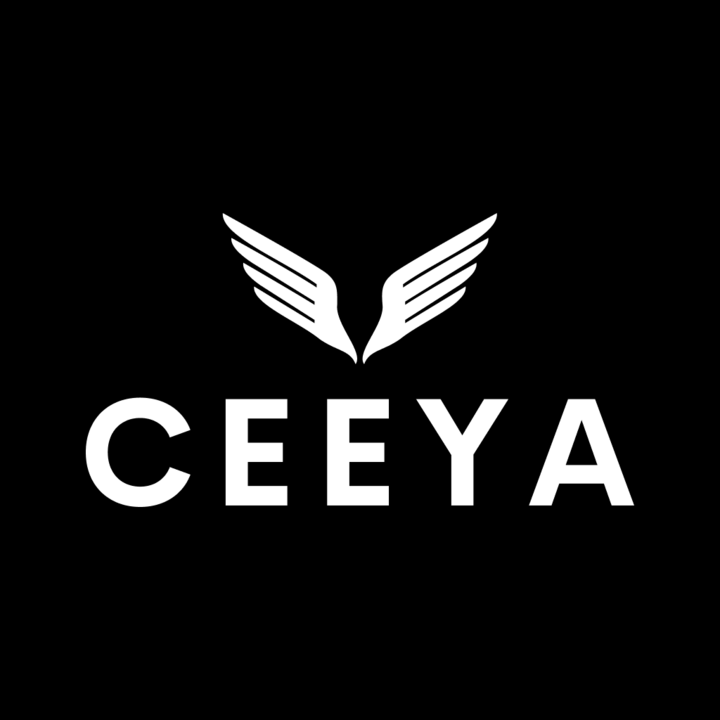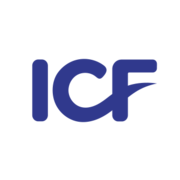Interested in becoming a business or career coach? We analyzed 12,000+ coaches.
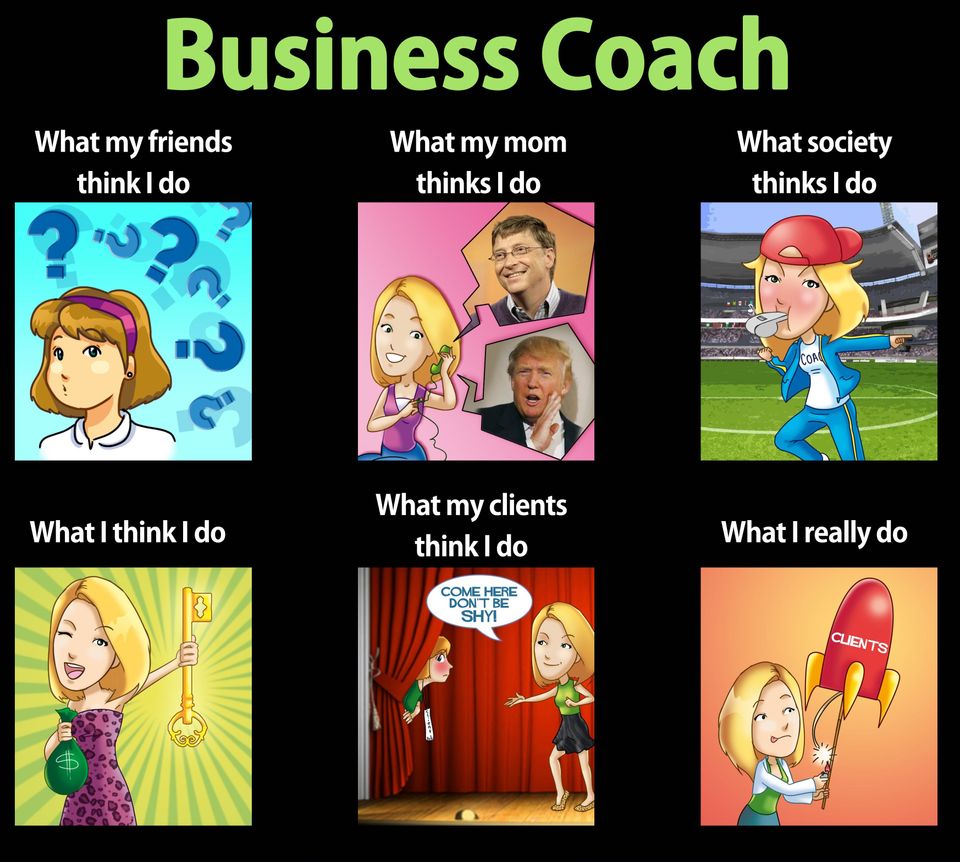
Whether it is for career, business, or life, coaching has soared in demand over the past couple of years. In fact, PriceWaterhouseCooper reported that business/life coaching is the 2nd fastest growing industry globally (link at the bottom).
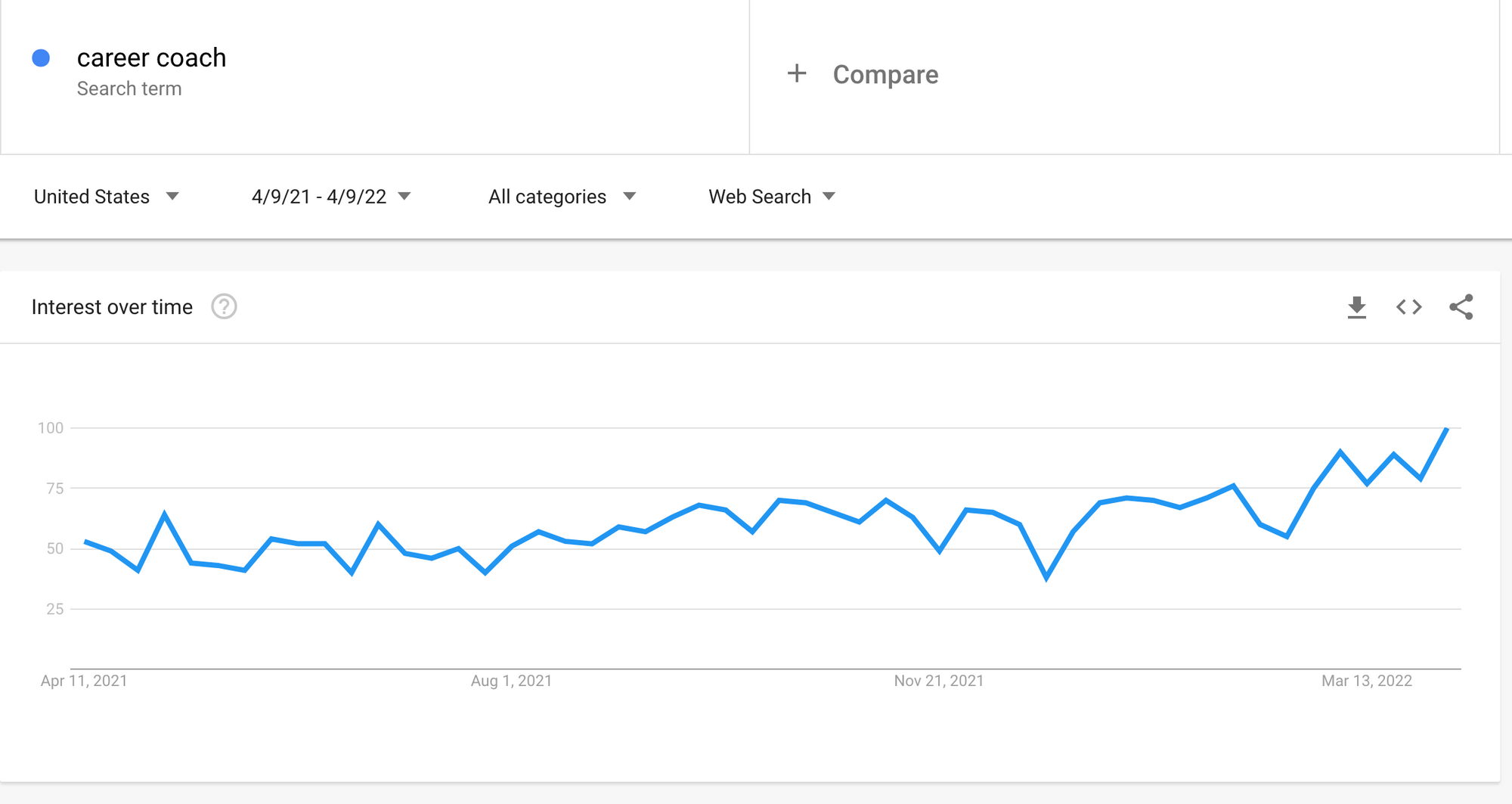
When it comes down to business coaching, one of the biggest names is International Coaching Federation (ICF). Founded in 1995, ICF is a non-profit organization with 50,000+ professional coaches. This acclaimed organization has a rigorous system where both the prospect and current coaches have to work hard in training, practice, and written reports to receive and maintain certificates. As the 'golden standard' in business coaching, getting a certificate from ICF stamps 'legitimacy' on their resumes.
A lot of knowledge workers have considered coaching or mentoring others and often ask us about how to start or what they need to provide. So we collected and ran the data for 12,000 US-based coaches in ICF to provide some details. Here are the results.
Age
Are there more coaches with older age groups? Yes. At least until 60. This one isn't so hard to guess. To become a coach, people would want to hire you as a coach. Oftentimes, the type of coach one wants to hire is not the most knowledgeable person with the highest IQ. At large, it's a relationship game that involves communication, wisdom, empathy, and accomplishments. So both life and professional experiences matter. The more people you've dealt with in your life, the better you become at making them your friends. Second, you need to be qualified to provide business advice, such as leadership and management. Being qualified often means you've actually done it yourself, such as climbing up the corporate ladders to become executives and managing a large team. The process normally takes decades where you would've grown quite a few grey hairs.
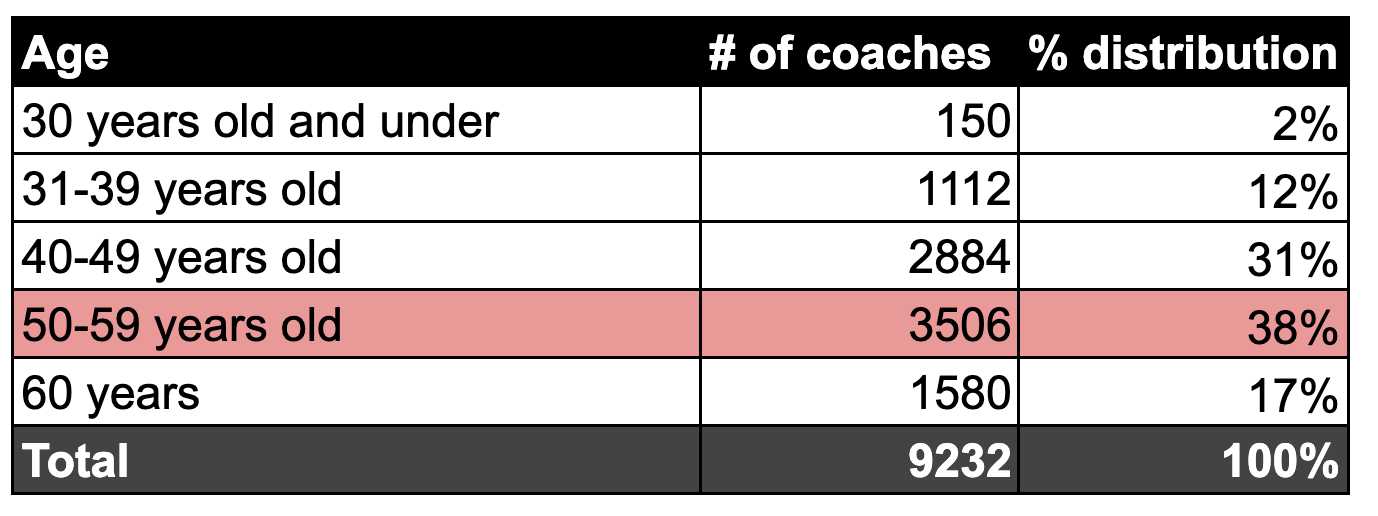
Gender
This one may or may not surprise you. It's also a very sensitive topic these days as gender stereotypes and biases are deeply integrated into our social fabric. At the same time, I believe it's still beneficial to throw the stats out there and let the readers come to their own conclusions.
76% are women and 24% are men. Having worked with hundreds of coaches after founding Ceeya, this particular stat did not surprise me as we always knew from our own experience that there were a lot more female coaches than the male counterpart.
So why? Again, there are plenty of stereotypes in explaining this gender bias, such as women being more empathic while men are more ambitious. I read a number of articles/blogs regarding this and have come to the conclusion that most of them are still largely based on stereotypes. I believe it will trend towards a better balance going forward.
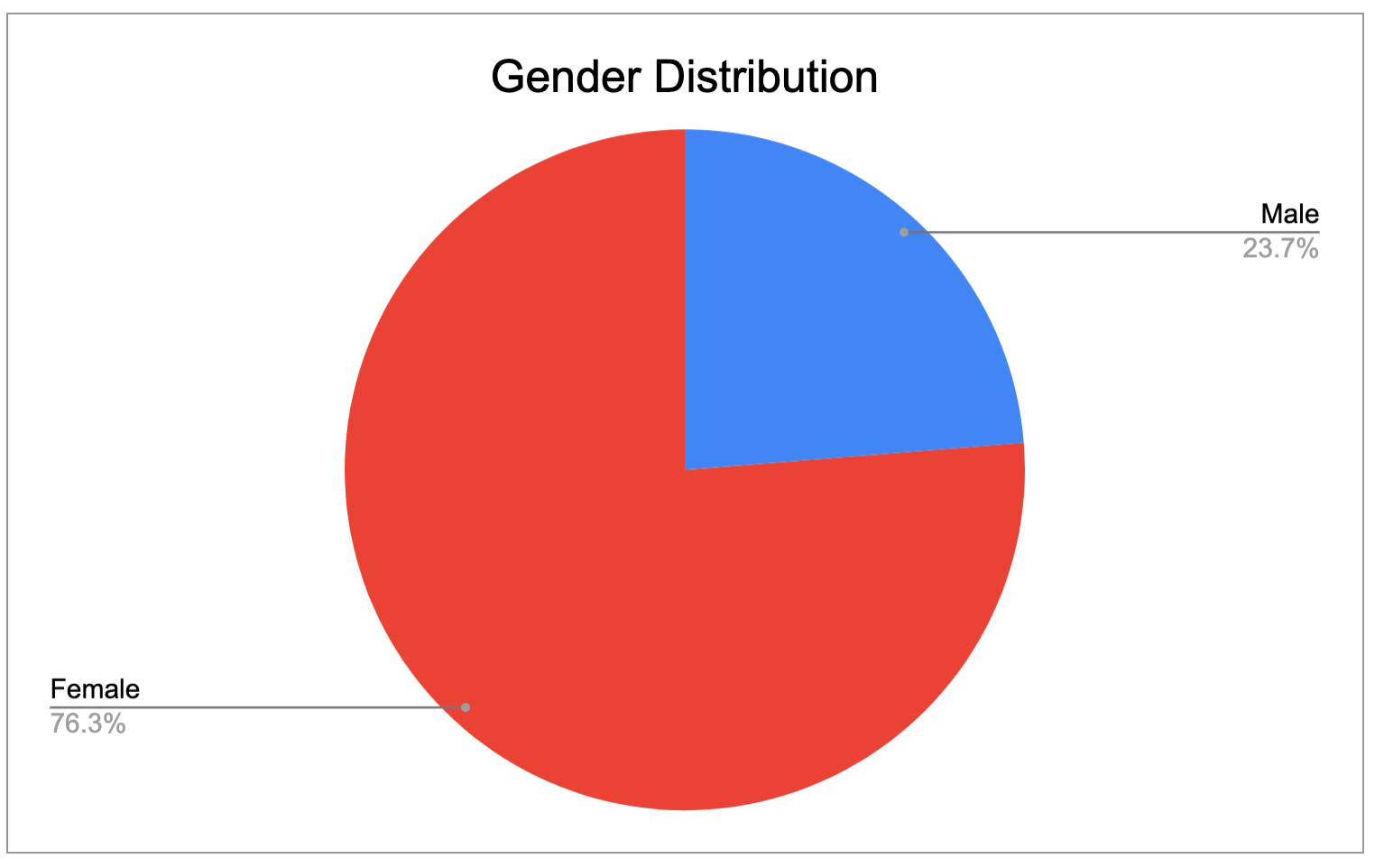
Academic Degrees
Out of 4377 coaches who responded, more than 60% (or 2761 ppl) of the coaches hold master's degrees, followed by college degree holders (1051), and Ph.D. (565). Given that ~13% of American adults hold some sort of advanced degree beyond college, one can say that the professional coaches on average are far more educated from the academic pedigree standpoint than the norm.
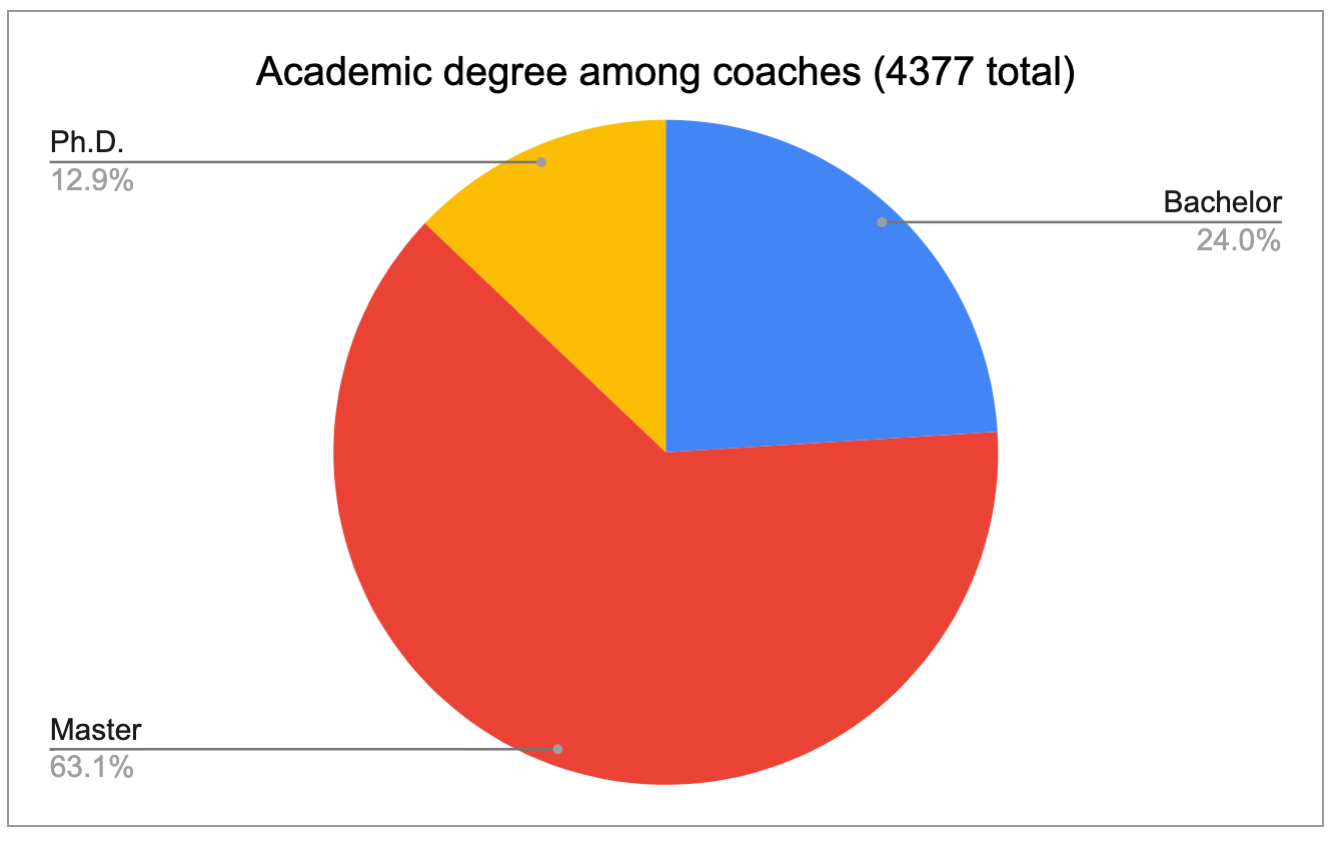
What did they study in school?
Out of ~6300 responses, business-related majors have the highest numbers. The rest of the list 'kinda' makes sense. For example, good coaches likely have excellent skills to read other people's minds (psychology ranked 2nd) and educate people (education ranked 3rd). It is also interesting to note that engineering (4th) and computer science (14th), two of the most technical fields, made the top 15.
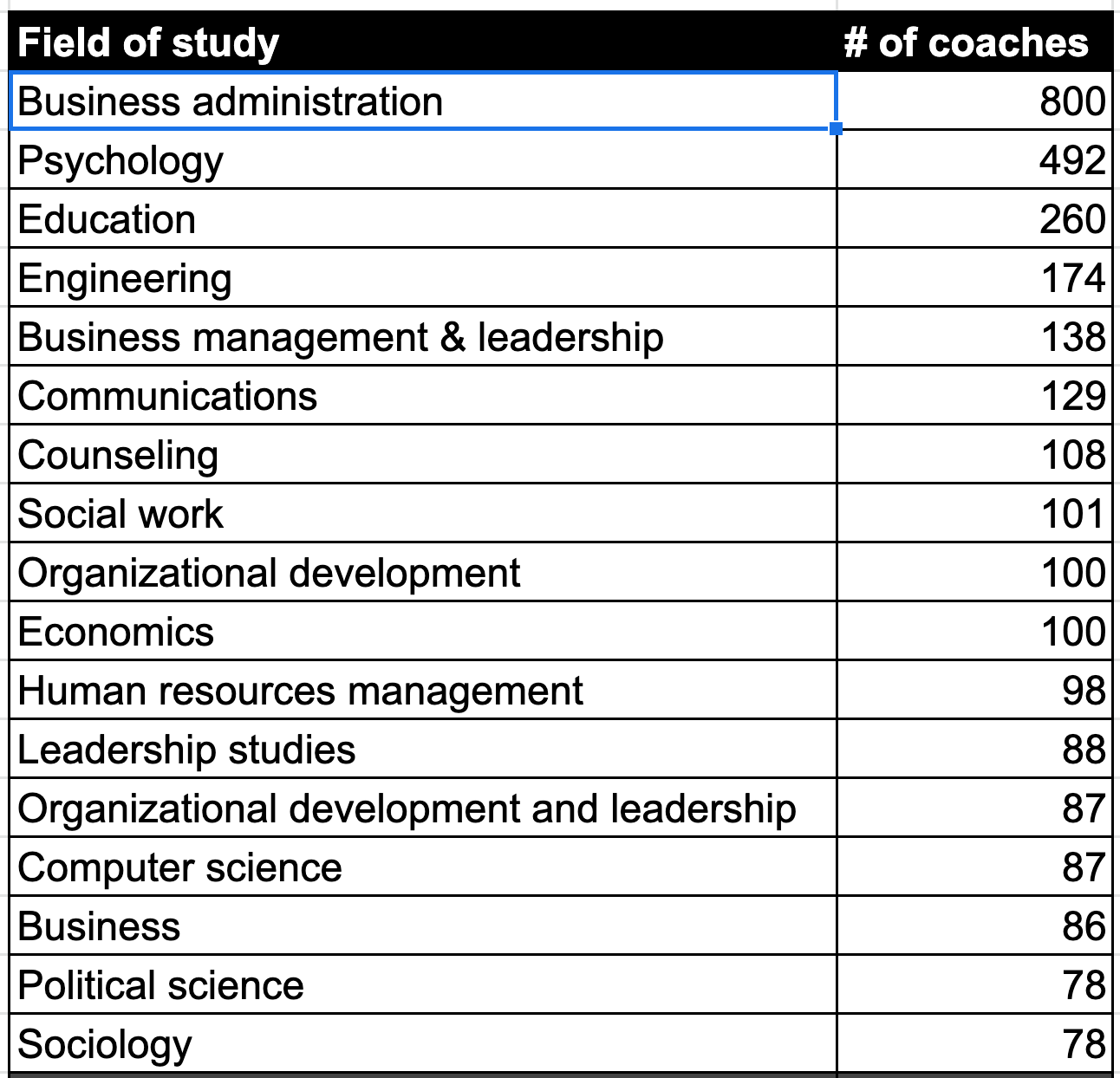
Hourly rates
Nearly 85% of professional coaches make $150 per hour or more with $250-$499 being the popular rates. This is very good compared with the average hourly rate in America at ~$30 per hour (although it's not apple-to-apple, given that coaches have far less number of coaching hours per week). Regardless, what's important here is that coaching is one of the last job categories to go overseas for cheaper labor. As most coaches operate as freelancers in some capacity, a vast majority of freelancers on freelancer marketplaces make less than $30 per hour, especially technical gigs, such as creating a company logo. Business/career coaching is one area that's hard to get while talking with someone overseas at cheap labor as the cultural and geographical contexts are vastly different. And such contexts matter. A lot.
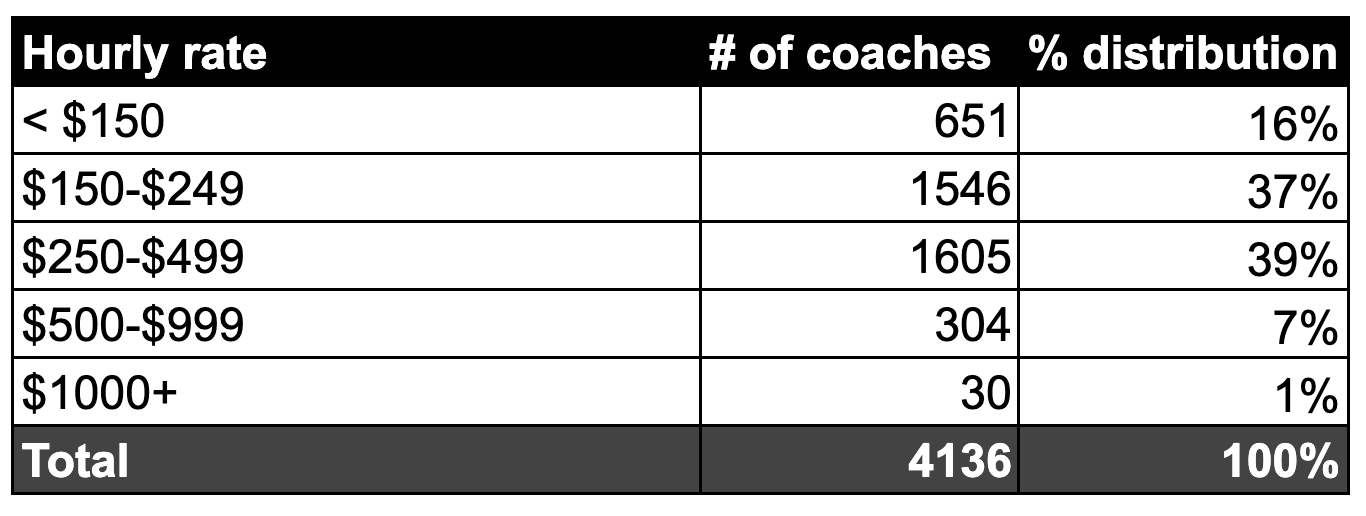
Coaching themes
The two biggest areas for business coaching are 1. Training for managers & executives and 2. Career development for professionals. Companies are increasingly investing more in upskilling their employees to become leaders as the company culture and employee satisfaction, often determined by the leaders of an organization, are becoming essential components to hiring and retaining talents. This is also a lucrative market for the coaches as many companies have deep enough pockets to hire business coaches to train their employees. On a similar note, in a world where frequent job change is the norm and constant self-development is rather 'required' than 'optional', individuals are investing more in keeping themselves up in the market.
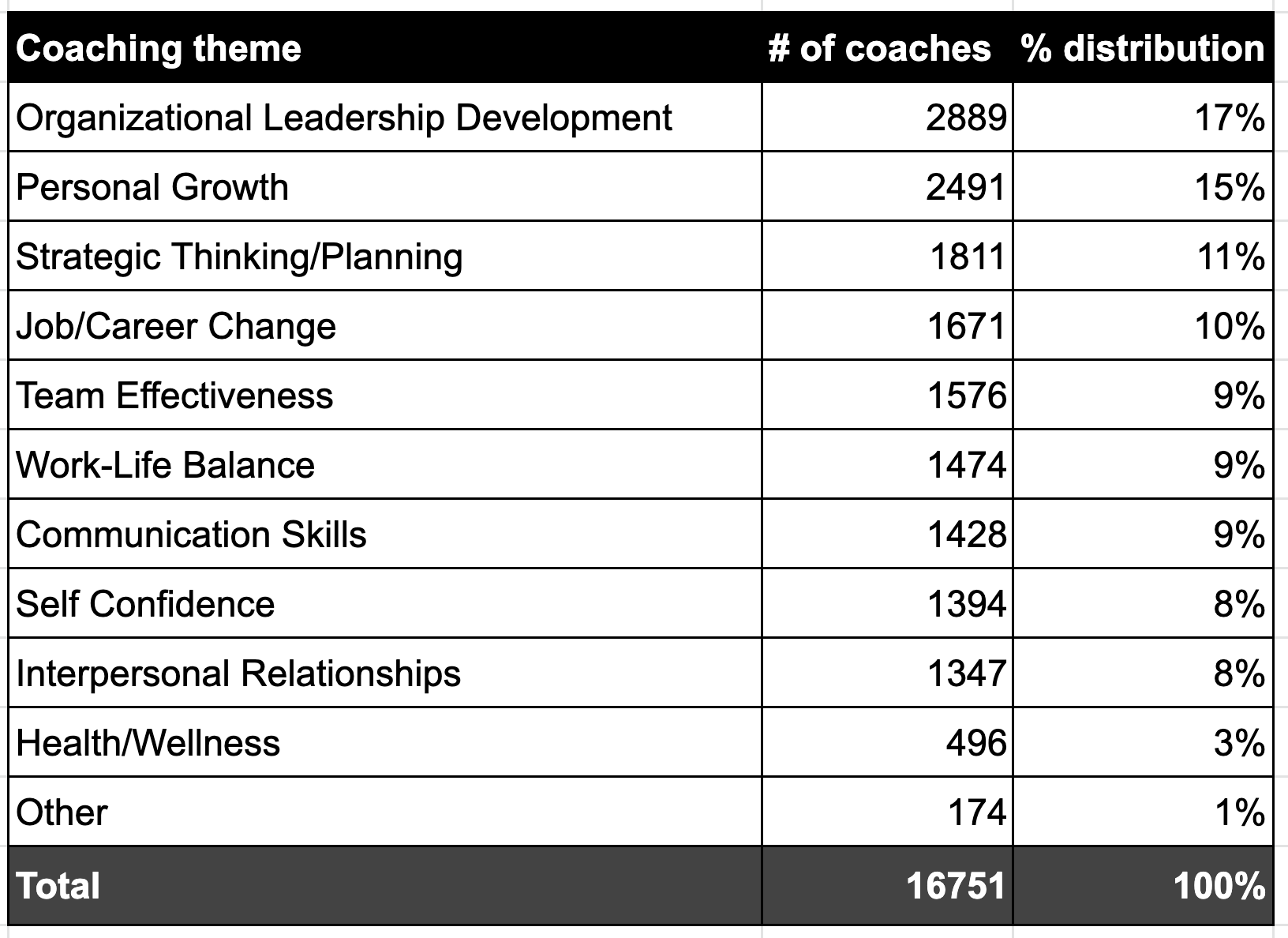
Sectors
The sectors are rather evenly distributed across the board. Hospitality/Leisure & Energy/Utilities seems to have the lowest demands. I thought about why. One theory is that the two industries are relatively legacy businesses without much innovation. The need for coaching may not be as necessary.
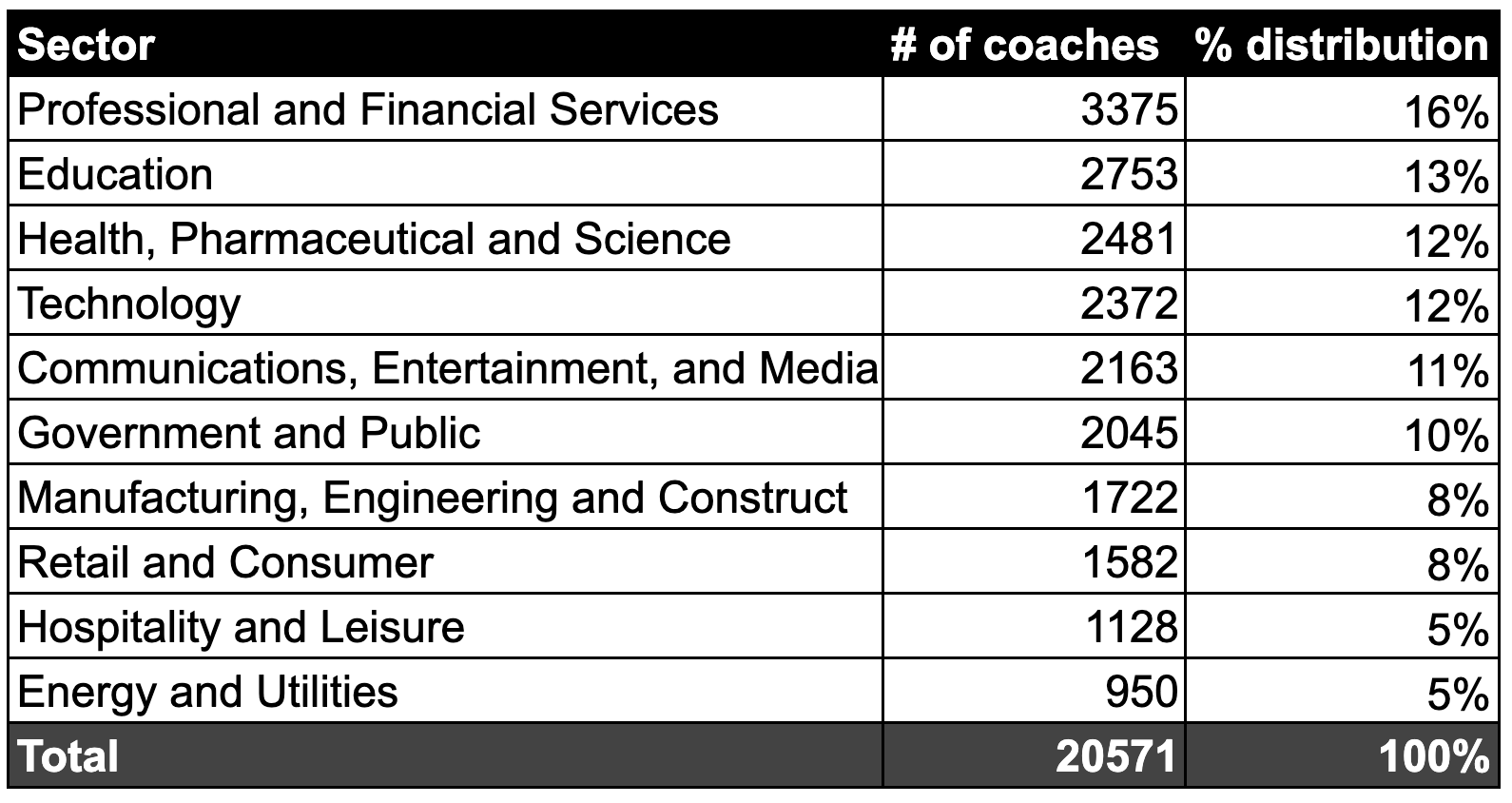
Having a website
A dedicated website (or strong online presence) for a coach plays an important role in personal branding and allowing clients to make business transactions directly. The best ones leverage websites to market themselves around. At the same time, building a well-branded coaching website with all the utility functionalities, such as advanced payments, isn't so easy. It often takes a lot of iterations, research, and effort to get it right. Out of the 12028 coaches, a little over 40% have websites.
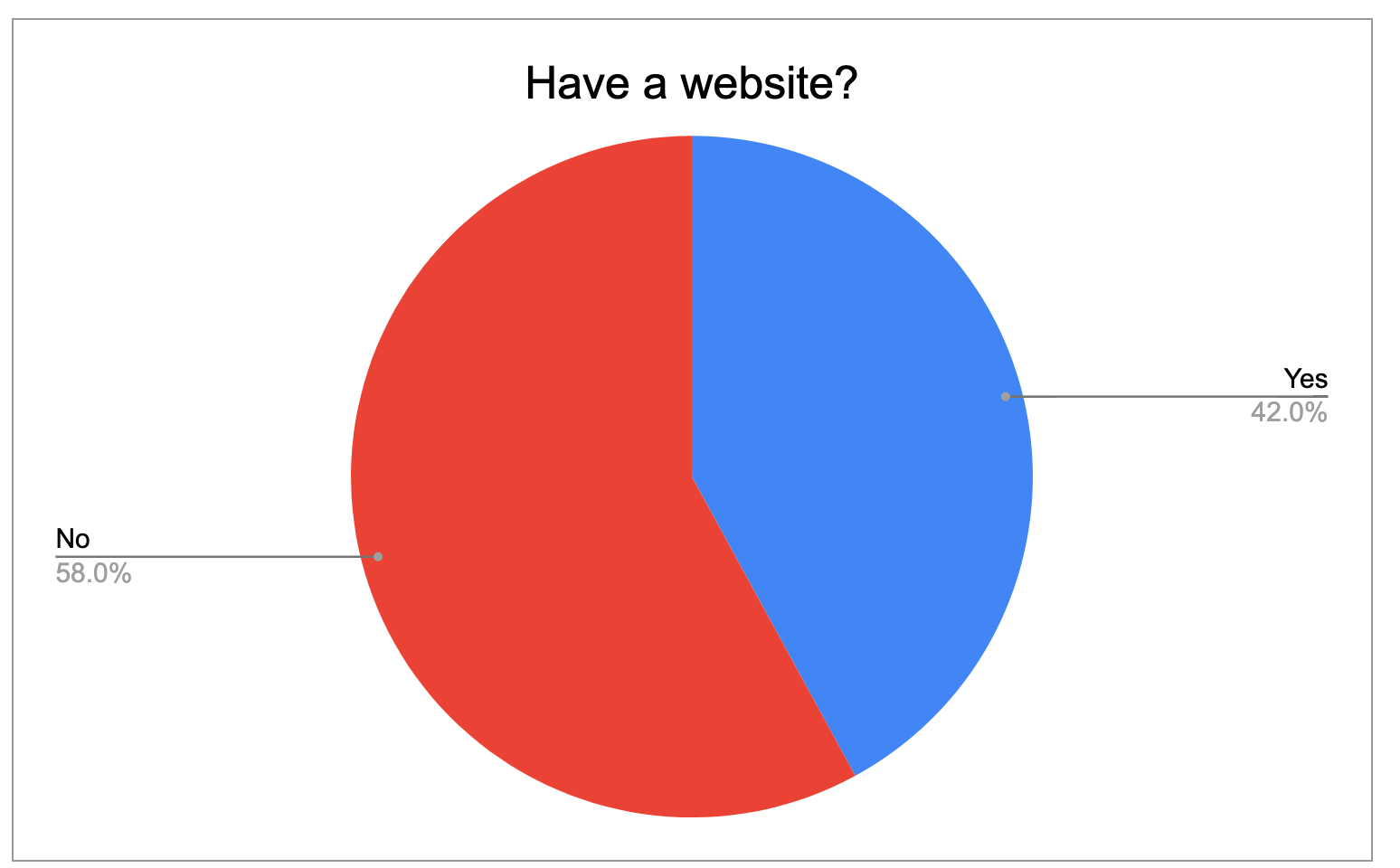
Still interested in becoming a career coach?
One thing we always tell people is that they should not underestimate themselves and think they are not qualified. That's far from the truth. It's all about finding the right target audience. Your professional position may very well be what many people want to be in 5 years.
So if you're still interested, drop us an email at empower@ceeya.io We will help you build your personal brand, decide on the services you can provide, and create demands.
Cee-ya!
Reference
